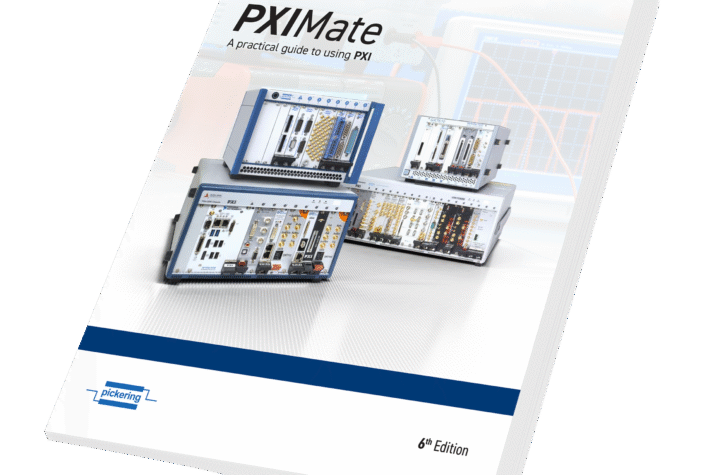
The National Highway Traffic Safety Administration (NHTSA) released guidance for the operation of autonomous vehicles. The Self-Driving Coalition for Safer Streets released the following statement from David Strickland, Coalition spokesperson and general counsel, in response to the guidance:
“This is an important step forward in establishing the basis of a national framework for the deployment of self-driving vehicles. Historically, the U.S. has been a pioneer and world leader in automotive technology. A federal approach to the self-driving industry will be key to enhancing motor vehicle safety while continuing to promote U.S. leadership, competitiveness and innovation. The operating guidance will help create the foundation necessary to inform industry and future regulatory and legislative efforts.
“We believe guidance from NHTSA is crucial to achieving these goals as it recognizes the challenges specific to regulating a new technology. We support guidance that provides for the standardization of self-driving policies across all 50 states, incentivizes innovation, supports rapid testing and deployment in the real world.
“State and local governments also have complementary responsibilities and should work with the federal government to achieve and maintain our status as world leaders in innovation. With the guidance now publicly available, we encourage state policymakers to engage with our Coalition to develop the appropriate policy solutions, and we stand ready to provide support and expertise for both technological and policy questions.
“We look forward to continued collaboration with NHTSA and other federal and state policymakers to further develop the national framework for safe and timely deployment that avoids a patchwork of requirements that could inhibit self-driving vehicle development and operations.”
The Self-Driving Coalition for Safer Streets was founded to promote the benefits of fully self-driving vehicles and support the safe and rapid deployment of this innovative and potentially life-saving technology. Founding members Ford, Google, Lyft, Uber, and Volvo Cars established the Coalition to work with lawmakers, regulators, and the public to realize the potential safety and societal benefits of self-driving vehicles. State policymakers who are considering action to develop policies for self-driving cars should email the Coalition at info@selfdrivingcoalition.org.
Automotive Industries readers will be interested in additional expert analysis
Following the announcement by the US Department of Transportation today on guidance for the development of automated vehicles, Jeremy Carlson, principal automotive analyst for IHS Markit, provides the following comments for background and attribution
Jeremy Carlson, principal automotive analyst, IHS Markit comments on DOT Federal Policy for Automated Vehicles
The US DOT has issued federal policy guidance on the testing and deployment of automated vehicles. The federal guidance reflects a shift towards a more proactive regulatory approach—it covers not only how and where the vehicle is supposed to function but also cybersecurity, privacy, human-machine interface, consumer education and a number of other relevant topics intended to be addressed from the early phases of design through deployment. Such a wide approach to regulatory assessment reflects the rapid pace of innovation and complexity in the fast-moving mobility and transportation industries.
The federal guidance also aligns to definitions from the Society of Automotive Engineers (SAE) describing the levels of automation, a shift from NHTSA’s 2013 policy which was a competing standard in some ways. This creates a clearer and in some ways simpler framework for an ongoing conversation between industry stakeholders, advocates, and state and local governments that can help direct ongoing regulatory efforts as the industry continues to progress. This action is therefore a positive step in enabling progress in the development and deployment of autonomous vehicles.
IHS Markit continues to watch the autonomy and mobility space closely, and this regulatory action from US DOT aligns with cautious but optimistic assumptions embedded in its latest autonomous vehicle sales forecast published June 2016. IHS Markit expects small volumes of autonomous vehicles throughout the next several years, before a decade of rapid growth beginning in 2025 which will see 76 million autonomous vehicles sold around the world from today through 2035. In the US, more than 18 million autonomous vehicles will be sold through 2035, creating new opportunities for automakers and drivers as well as new choices in personal mobility, broadly aligning to SAE Levels 4 & 5.
Federal automated vehicle guidelines: U-Michigan statement
The U.S. Department of Transportation announced today its Federal Automated Vehicles Policy, intended to facilitate the responsible introduction of automated vehicles to make transportation safer, cleaner, more accessible and more efficient.
Huei Peng, director of the University of Michigan Mobility Transformation Center and the Roger L. McCarthy Professor of Mechanical Engineering, issued the following statement in response:
“The University of Michigan supports the Federal Automated Vehicles Policy announced today by the U.S. Department of Transportation. The policy promotes safe innovation and is an important step toward speeding the development of advanced mobility vehicles and technologies, and ensuring their benefits will be fully realized, particularly improving safety.
“The policy provides flexibility. It doesn’t lock in regulations that might take a long time to build on, but gives vehicle developers in industry and in the academic community an opportunity to learn and improve as technologies develop.
“The U.S. DOT’s policy provides a clear path forward for our work, and reinforces the broad research portfolio we’re already undertaking, which goes beyond technology to encompass questions about the impact on society of connected and automated vehicles.”












More Stories
How Modern Power Management Enhances Connected Fleet Tech
Automotive Industries (AI) Newsletter April 2025
Will Cars Function Like Smartwatches in the Future?